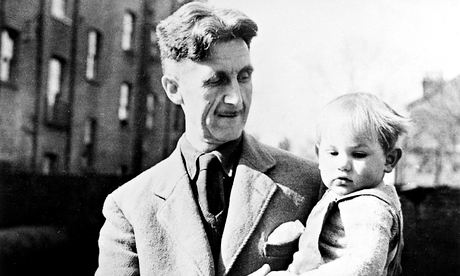I admire Orwell for how he lived as well as for how he wrote. He would have sneered at the notion that he was a saint – he once described the Christian heaven as "choir practice in a jeweller's shop". All the same, for me he was a secular saint. His road-to‑Damascus moment came when he resigned from the Indian Imperial police in 1927. He was aware, he said, of an "immense weight of guilt" he had to expiate, so he joined the beggars and outcasts, as described in Down and Out in Paris and London and "How the Poor Die".
He was a truth-teller, admitting to feelings others would hide. In Burma he had found the taunts and insults of the radicalised Buddhist priests hard to bear. Part of him thought of the British Raj as a tyranny, but another part thought "the greatest joy in the world would be to drive a bayonet into a Buddhist priest's guts".
He admired courage and "the military virtues", regarding pacifism as a luxury others pay for. He wrote: "Those who 'abjure' violence can only do so because others are committing violence on their behalf." He regretted having been too young for the first world war, but in Spain he fought against fascism with the POUM anarchist militia, was shot in the throat and almost killed.
Spain opened his eyes to the ruthlessness of Soviet communism. The communists had no intention of allowing the anarchists an independent role; they were hunted down and liquidated. Orwell and his wife Eileen only just escaped. He also witnessed the communist media's rewriting of history – battles in which he had fought were completely misreported. His vision of a totalitarianism in which the very concept of objective truth vanishes grew into Animal Farm and Nineteen Eighty-Four.
Comradeship with common soldiers in Spain clarified what socialism meant to him: that the highest-paid would not get more than 10 times what the lowest-paid got; that hereditary privilege would be abolished; that the public schools and universities would be filled with state‑aided students chosen simply for ability. Far too much like social justice for anyone to advocate now.
• John Carey's The Unexpected Professor is published by Faber.





 del.icio.us
del.icio.us
 Digg
Digg
Les commentaires sont fermés.